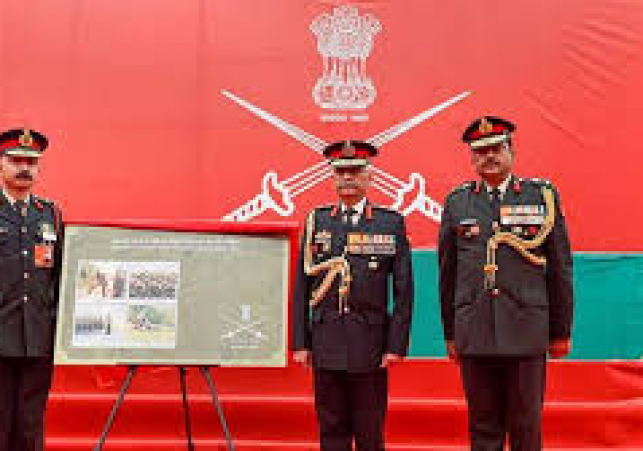

General MM Naravane, speaking on the 74th Army Day, stated the Army will prevent any unilateral attempts to disrupt the status quo along the frontiers.
Army Chief General MM Naravane said during his speech on the 74th Army Day on Saturday that the Army will prevent any attempts to unilaterally change the status quo along the borders, and that the country’s patience stems from self-confidence, but that it should not be put to the test by adversaries.
Army Day commemorates the day in 1949 when General KM Cariappa, later the country’s second Field Marshal, became the first Indian Commander-in-Chief of the Indian Army.
Naravane told the crowd that the previous year had been “difficult for the Army.”
“Senior military leaders gathered for the 14th time on the northern border to keep the situation under control. Due to collaborative efforts at various levels, disengagement has occurred in numerous sectors.” “Our efforts will continue to find a resolution on the premise of reciprocal and equal security,” Naravane said, describing the negotiations as a promising move.
“Our patience is a reflection of our self-assurance. But no one should put it to the test.” As expressed by the Army Chief. “Our message is clear: the Indian Army will not tolerate any unilateral attempts to alter the status quo on the frontiers.”
Naravane commented on the situation along the Line of Control on the western front, saying that it is “better than last year.” “Since the DGMOs reached an agreement in February, ceasefire violations have been mostly managed. Pakistan, on the other hand, is unable to break its habit of providing safe haven to terrorists.”
He claims that 300 to 400 terrorists are waiting for an opportunity to infiltrate training camps over the border and that attempts to smuggle weapons using drones are continuing.
However, he said that “alert operations and effective counter-infiltration had stopped many infiltration bids” by the Army.
He stated that progress has been made in the hinterlands of Jammu and Kashmir, even as terrorist organizations funded from across the border have attempted to stifle progress, and that these efforts have acquired traction. Naravane explained that part of the plan is to target non-locals and poor migrants.
“Violence incidents have decreased significantly as a result of the security forces’ ongoing efforts. The Army has killed 194 terrorists along the Line of Control and in counter-terrorist operations in the recent year.”
Regarding the situation in the northeast, the Army Chief stated that “the security situation has improved significantly as a result of proactive operations,” and that “most terrorist organizations have agreed to a ceasefire as a result of these operations.”
“A proof of this improved scenario” is the reduction in Army deployment for internal security. The Assam Rifles are focusing on the India-Myanmar border, which Naravane described as “extremely vital from the perspective of national security.”
On Army Day, top political leaders also exchanged greetings.
The Army’s role “towards creating a peaceful environment is crucial to the economic progress and holistic development of the Nation,” according to President Ram Nath Kovind.
The Army is “renowned for its bravery and professionalism,” Prime Minister Narendra Modi remarked in a tweet. The Indian Army’s essential contribution to national security cannot be adequately expressed in words.”
“As India rises in stature and power, the Indian Army will remain crucial in preserving our national interests and fulfilling our national objectives,” said Defence Minister Rajnath Singh. He said the Army “inspires trust” among the people of the country because it “resolutely maintains an unrelenting vigil” across the country’s borders.